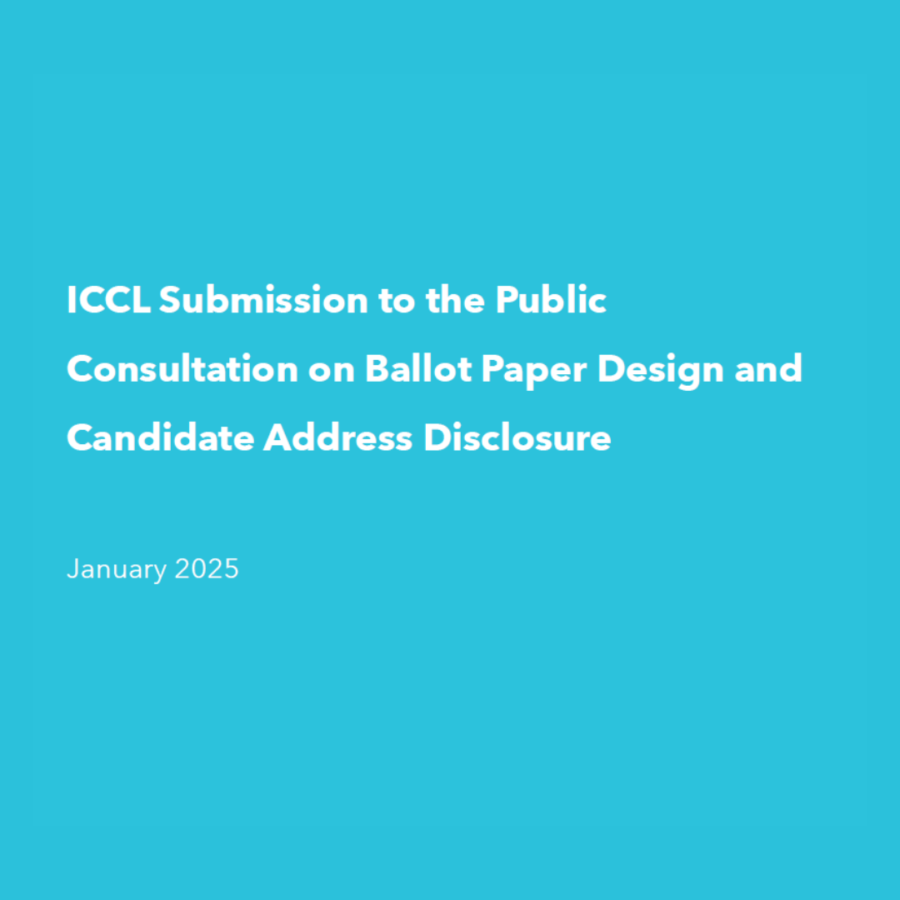10 February 2025 — ICCL recently made a submission to the Public Consultation on Ballot Paper Design and Candidate Address Disclosure. This submission focuses on the need to balance the rights to privacy and security of candidates and elected representatives, with the public’s right to information.
The current system for candidate address disclosure — whereby full candidate addresses are published on ballot papers — does not adequately balance these rights.
Publishing a candidate's address may increase the risk of them receiving physical threats or abuse, including at their home. Releasing details of private residencies also risks interfering with candidates’ constitutional rights to the protection of their home and to a private family life.
The nature of social media, which facilitates the rapid spread of information, also heightens the risk of protests and threats in the vicinity of candidates' homes.
The current ballot paper design may also act as a deterrent for those who wish to enter politics, particularly for people from minoritised groups who may face additional harassment, or those who advocate for unpopular political positions.
When taken at face value, making the disclosure of an address optional seems an optimal solution. However, it is ICCL’s view that the proposed optional approach may unintentionally favour incumbent politicians.
In our submission, we offer a number of recommendations to address these issues:
- Providing details of the Electoral Division in which the candidate lives as an alternative to their home address.
- Printing the address of the polling station where a candidate is registered to vote at on the ballot paper, as opposed to their home address.
- Providing a visual display of the approximate addresses of all candidates on a map in the polling station, online or in local media

